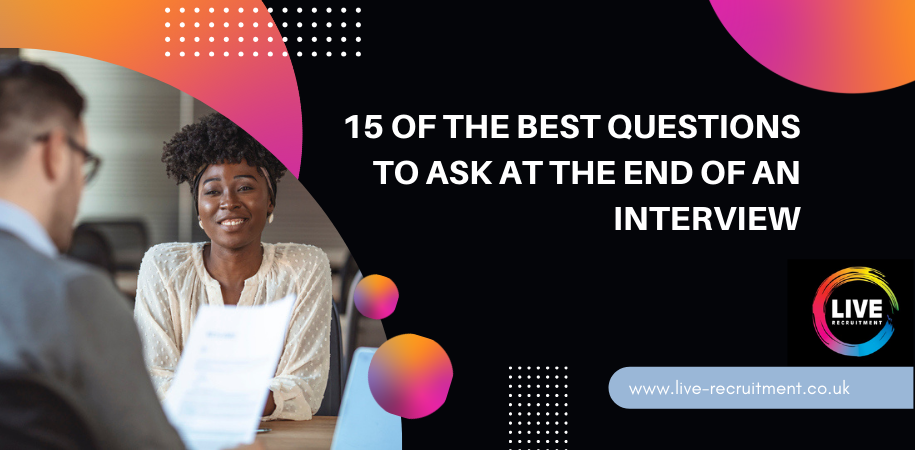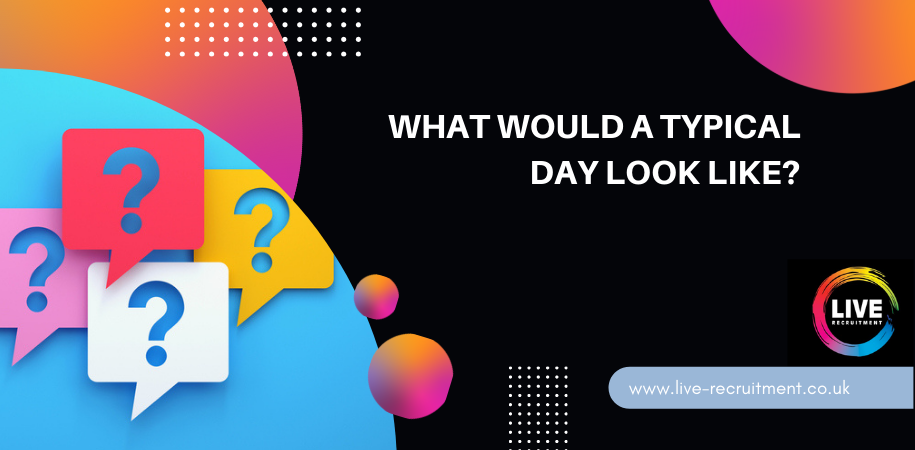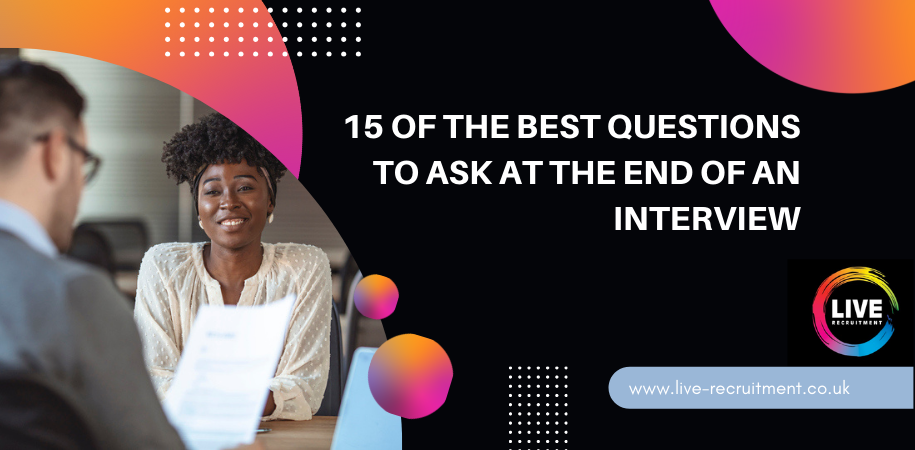An interview should always be a two-way conversation, not a one-way grilling. At the end of the interview, candidates should always have the opportunity to ask questions. After all, they may also need to make a decision about whether this role is right for them.
It’s common for hiring managers to assume that every candidate would accept the role on the spot, but it isn’t always this simple, particularly if there are multiple roles for the candidate to consider. So, the end of the interview questions are an important part of the process.
Asking the right questions is also a great opportunity to further highlight just how perfect you are for a role. It’s a great excuse to highlight your ability to listen and condense information before formulating a considered response.
Do employers always invite questions?
They don’t always, but they really should. If an employer doesn’t give you the opportunity to ask questions at the end of the interview, it might leave you wondering if you really want to work for them. After all, they aren’t interested in demonstrating what the company can offer you.
Sometimes it comes down to a simple lack of time, so if your interview runs over, don’t be surprised if they don’t have time to answer all of your questions. But most good employers will try to prioritise this at the end of your interview.
Why you should always ask questions
You should always ask questions when given the opportunity as it shows that you are actively engaged in the interview process. You’re not simply sitting back and hoping for the best. You’re trying to determine if this role can challenge you and support you in the right ways.
Asking questions is also a great way to clear up any misconceptions they might have about you, or reiterate any points that you feel are important for them to know. And finally, asking questions also gives you the final word in the interview, which is a powerful position to be in. Ask the right questions, and you could leave them with a really strong first impression.

15 of the best questions to ask at the end of an interview
If you’re short on time, you can review the top 15 questions to ask at the end of an interview below. But if you’re looking for more context and information, we’ve also shared why these questions are so powerful and what you can achieve by asking them.
Here are the top 15 questions you should consider asking at the end of an interview. You don’t have to ask a lot of questions, 2-3 is usually enough. Having 4-5 prepared can give you options in case your question has already been answered throughout the interview.
Can you tell me how you would measure success in this role?
Is this a new role?
Why did the previous person leave this role?
Who would I be working with? What can you tell me about them?
What is the management style in this company?
Why is this company better than your competitors?
What is the company culture like?
What would a typical day look like?
What training opportunities are available?
What would you expect me to achieve in the first 12 months?
What changes are on the horizon for this company?
Do you have any hesitations about me?
What are the next steps?
What do you personally like about the company?
This is a great way to turn the interview on its head and get some valuable insight into how the employees see the company. This will hopefully reveal something very different that you won’t have learned from the company “about us” page, or the job description.
This answer can be very revealing, so if the interviewer is immediately flustered and can’t think of anything, this could be a considerable red flag.
What do you find challenging about working for the company?
Like the question above, this will tell you a lot about the working culture and what you can expect in the role. It requires a lot of diplomacy to formulate an honest answer that doesn’t damage the company's reputation in any way.
Common challenges that individuals might face include high workload, poor communication between departments, a lack of support from upper management and high staff turnover. Remember that if the company owner is on the interview panel, they might object to a question like this.
Can you tell me how you would measure success in this role?
This is an incredibly revealing question that will let you know what metrics will be used to measure your progress. If you are a person who thrives on regular feedback, then learning that you’ll have monthly reviews will be encouraging. But if you’re someone who prefers to be left alone, this could be a red flag.
Is this a new role?
It’s important to ask this question as it will tell you a lot about the company and its growth. If the role is new, this could indicate expansion and growth. You can then ask why the role was created and what skills gap they are hoping to fill. If the role is a new role, you might have the opportunity to make it your own, but if you are replacing someone, you might feel like you have shoes to fill. In which case, you might want to ask the following question, too.
Why did the previous person leave this role?
This question isn’t as aggressive as it first seems. People leave roles for a lot of reasons, and sometimes it’s because they have progressed within the company. When you ask this question, you are really asking for an example of the kind of career progression you can expect.
However, if they reveal that the previous person left because of stress or they couldn’t handle the workload, this could be an indicator that something is amiss. This might not be said so directly, so you might have to read between the lines.
Who would I be working with? What can you tell me about them?
The people you work with are essential to happiness and success in any role. If you will be working alone, the interview stage is a good time to learn this, as this working arrangement isn’t right for everyone.
If you will be working with a large team, you might want to learn more about these people so that you can understand how you will fit in. You might also want to know if you’ll have an opportunity to meet with other members of the team before making a final decision.
What is the management style in this company?
Understanding more about the management style can help you to decide if you’ll be a good fit for the company. Most people thrive in a situation with minimal supervision as it shows a degree of trust in their judgement. If management is happy for individuals to work from home and manage their own schedules, this is a really good sign that you’ve found a company that values its employees.
A micromanager will never admit to being a micromanager, but there will be telltale signs that this is the case. For example, if you can expect daily targets and weekly check-ins with your line manager, this could be a sign that there is a micromanagement problem in the company.
Why is this company better than your competitors?
When you ask this question, it’s important to remember that employees are one of the most valuable assets in a company, so it’s in their interests to attract the best of the best. They should be actively trying to win you over, so asking them about their competitors will remind them that you’re aware they aren’t the only company out there.
What is the company culture like?
Company culture is often difficult to define, but it can be as simple as knowing whether or not the team socialises after work on a Friday or if everyone goes home. If you’ve moved to a new place on your own, you might be looking for a company where after-work socialising is the norm. But if you’re settled down and just want to be able to do your work and go home without the guilt, then a more conservative workplace might be more suitable.

What would a typical day look like?
This is an excellent question as it shows that you’re already visualising yourself in the role. And you’re looking at the everyday practicalities, not just the highlight reel. Asking this question can help to reveal the true nature of the work they’ll be expecting from you. Job descriptions often do not show the percentage of time that will be spent on different tasks, so by asking this question you’ll learn more about the true variety on offer.
What training opportunities are available?
When you ask this question, you’re not just asking what extra perks you’ll get for free, you’re asking how much they are willing to invest in you as an employee. If there is no budget for training and the employer is not willing to allow you to take time out of your working day for training, you have to wonder how much they are really invested in their workforce. But this question could also reveal training plans, development budget and huge opportunities for personal growth.
What would you expect me to achieve in the first 12 months?
If you are a target driven person, you want to know what is expected of you at all times. Starting a new job is daunting, but it can be even more daunting when you don’t really know what is expected of you. Having an indication of the rate at which you should progress in the company is essential for determining if this is the right role for you. It can also tell you a lot about the kind of career progression you can expect.
What changes are on the horizon for this company?
Knowing what the future holds for the company is so important for you to be able to make an informed decision. For example, if the offices are about to move from a convenient location to a less convenient location, this would be helpful to know before you accept a job offer. You might also want to know about plans to expand specific departments, as this could offer opportunities in the future. This is also an opportunity for the employer to mention any big projects or clients that could help to sway your final decision.
Do you have any hesitations about me?
This can be an incredibly scary question to ask in an interview, but it can also be very valuable. When you ask this question, you have one last chance to highlight anything that you think the interview panel should know about you. So, if you worry that you’ve missed a vital bit of information that could help to persuade them you are the right person for the role, then this is your opportunity to share it. Be prepared for them to decline to answer this, particularly if they are planning a second round of interviews. This question can also highlight problems you might have with your interview technique. So, even if you aren’t successful with this role, you’ll know what you need to do to improve in the future.
What are the next steps?
This is an obvious question to ask, but it is often overlooked. You should always ask this question at the end of the interview so you know exactly where you stand. There might be another round of interviews, or they might be looking to offer the role to someone the following day. Make sure you’re clear on the next steps before you leave so you know when you can expect an answer.


